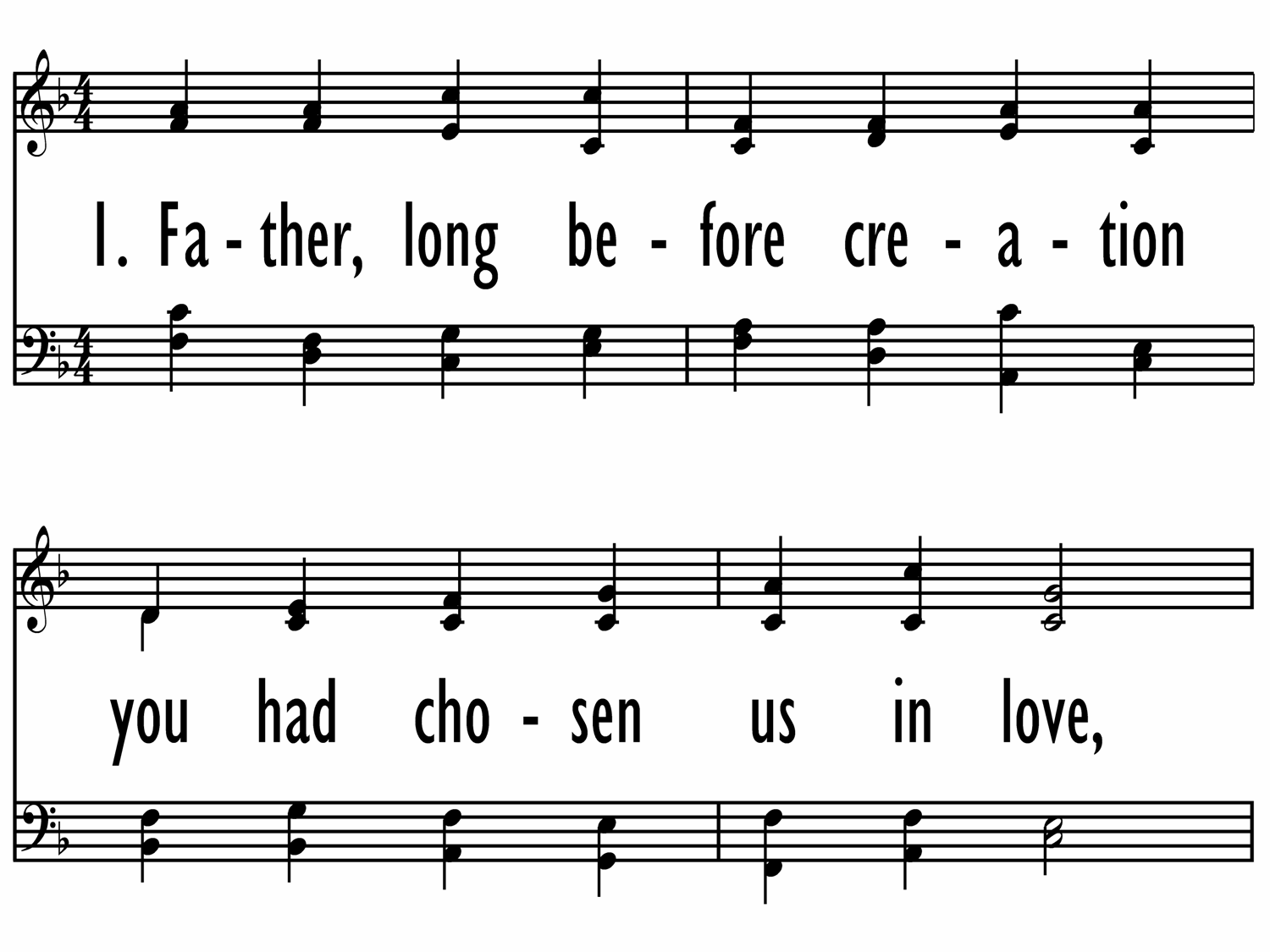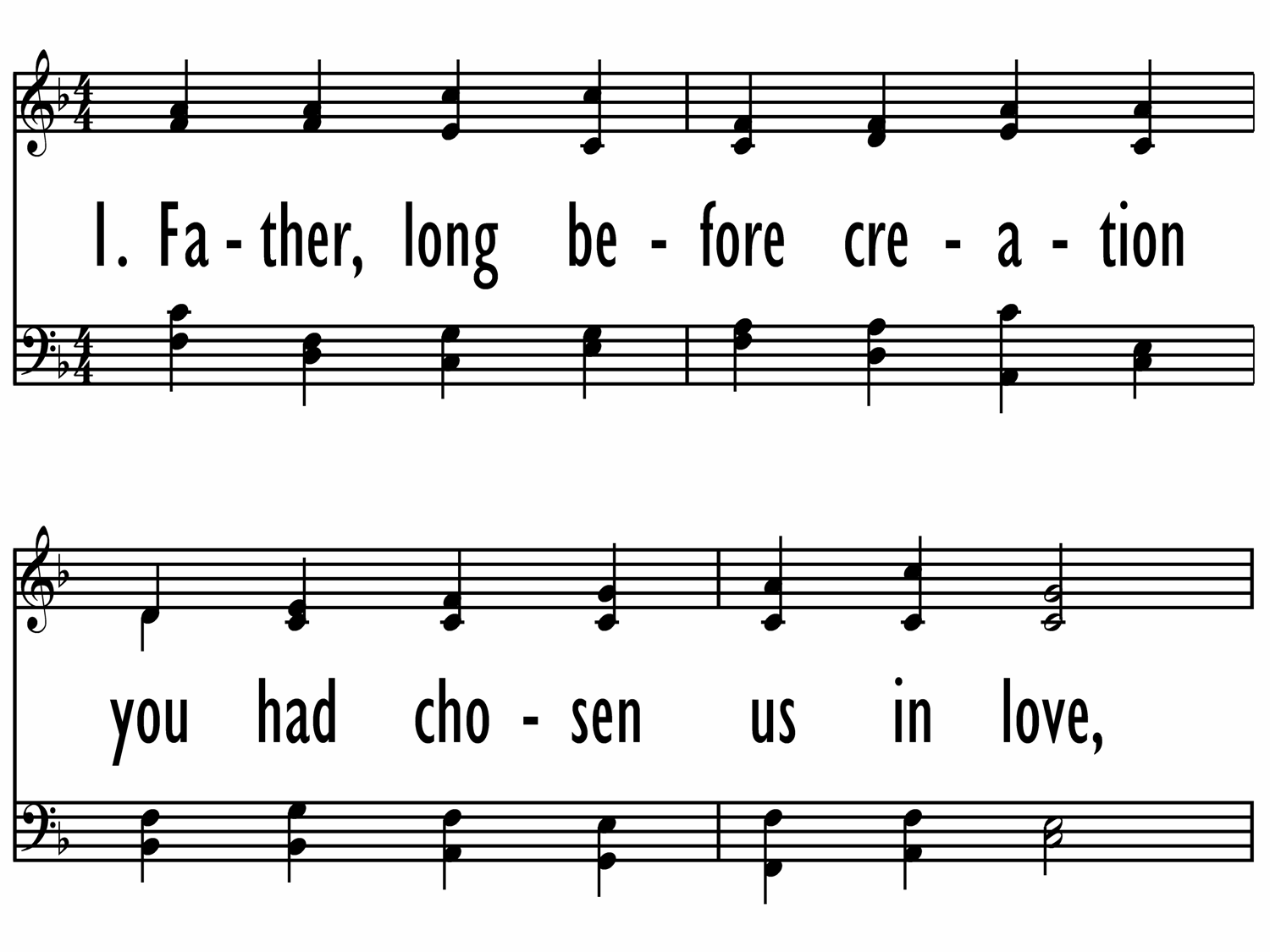- |
User Links
Father, Long Before Creation
Hymn Information
- First Line
- Father, long before creation
- Translator
- Francis P. Jones (1953, alt.)
- Text Source
- Chinese, ca. 1951
- Tune Name
- CORONAE
- Composer
- William H. Monk (1871)
- Topic
- Boasting · Election · God's: Providence · Praise of God · Elements of Worship: Forgiviness and Grace
Copyright Information
- Text Copyright
- Public Domain
- Tune Copyright
- Public Domain
- Reprint/Projection Information
- Words and Music: The Words and Music are in the Public Domain; you do not need permission to project or reprint the Words and Music.
Full Text
Scripture References
Further Reflections on Scripture References
With various references to Ephesians 1:3-14, the text confesses the Christian faith. That confession is all the more bold when it is seen against the background of the Chinese Cultural Revolution. Stanza 2 states that “Though the world may change its fashion, you will still remain the same.” Stanza 3 concludes with a line from John 3: 16, "God so loved us that he gave his only Son." The entire text affirms God's electing love and redemptive grace and leads to a final stanza in which we sing "glory to the Lamb upon the throne."
Bert Polman, Psalter Hymnal Handbook
Confessions and Statements of Faith References
Further Reflections on Confessions and Statements of Faith References
The Catechism says that those who know Christ’s forgiveness are “to thank God for such deliverance” (Heidelberg Catechism, Lord’s Day 1, Question and Answer 2). As a result, “With our whole lives we may show that we are thankful to God for his benefits, so that he may be praised through us, and that we may be assured of our faith by its fruits, and so that by our godly living our neighbors may be won over to Christ” (Heidelberg Catechism, Lord’s Day 32, Question and Answer 86).
Father, Long Before Creation
Words of Praise
Additional Prayers
Father, Long Before Creation
Tune Information
- Name
- CORONAE
- Key
- F Major
- Meter
- 8.7.8.7.4.7


 My Starred Hymns
My Starred Hymns





